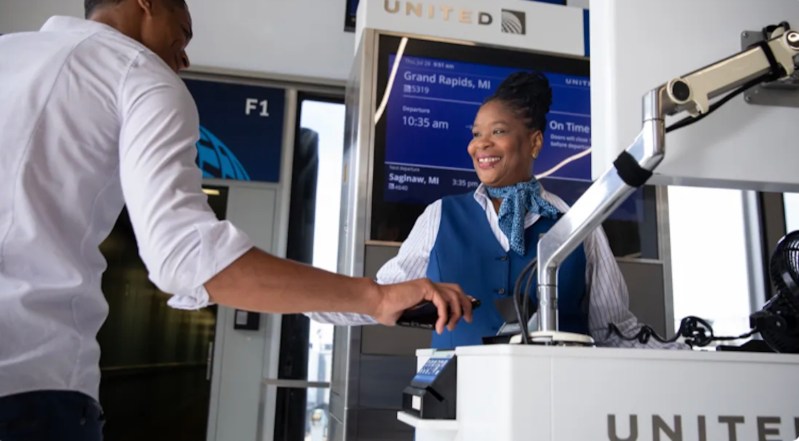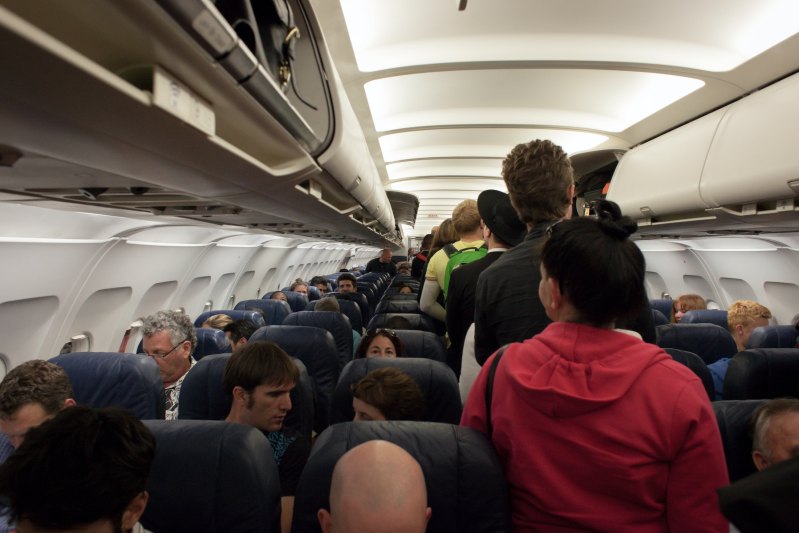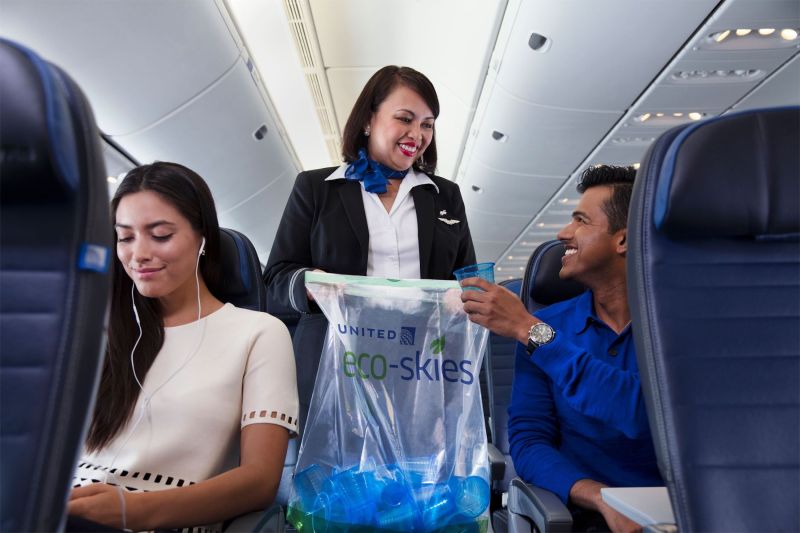
No matter how many new travel hacks emerge on the internet, there’s one aspect of travel that remains an inescapable pain: boarding. Getting dozens (or hundreds) of people into their seats in a timely manner can easily be prolonged by inevitable things like sitting in the wrong seat, putting bags in overhead bins, or standing in the wrong boarding group line. When trying to keep flights on time and customers satisfied, a lengthy boarding process can cause unnecessary delays. United Airlines is looking to minimize these long boarding times with the re-introduction of its WILMA boarding order.
Using this method, passengers board window-to-aisle, which will save an estimated average of two minutes per flight. Ground time runs United around $100 a minute, so every minute saved will create attractive savings across all flights.

What to expect on United Airlines flights
Changes in the boarding process on domestic and select international flights began on October 26. Beginning with boarding Group 4, passengers with window seats will be instructed to board first, then the middle, and then the aisle seat, regardless of what aisle the seat may be in.
Pre-boarding, first class, and business class will go unaffected. So far, these are the only expected changes to the boarding process, and it will likely take passengers a flight or two to adjust. Usually, the luck of being at the front of the line for the boarding group meant getting on the plane and into your seat even quicker. That’s now a thing of the past; passengers flying economy will be at the mercy of the seat they were randomly assigned. For travelers who purchase their seats, if getting on the plane faster is a priority, a window seat should be considered.
During COVID, boarding back to front was United’s go-to method. Since lockdowns and the pandemic have stilled, the standard free-boarding by groups has resumed. With a third change to boarding in just a few years, some customers being flustered is inevitable and understandable. It has yet to be seen how strictly United’s gate agents will enforce this policy. If it’s strictly enforced, unaware passengers who try to board with the wrong seat arrangement could expect to be sent away from the ticket scanner until their seat placement is called.

The upsides to better United boarding groups
United and its passengers share a common interest when it comes to the overall flight experience: efficiency. Even though it may take some getting used to, WILMA boarding will come with big perks for the ease and efficiency of traveling with United. The expected two minutes saved with this boarding method may seem miniscule, but it can be the difference between a day of on-time flights and a day of late ones. With many travelers dissatisfied with consistently late flights, this could have a positive impact on United’s customer satisfaction ratings.
Shortened times on the ground will also positively impact United Airlines’ carbon emissions by lessening the energy consumption of each aircraft. United has already begun making changes in its sustainability practices, starting with its Eco-Skies Alliance. As airlines strive for a mix of environmental sustainability and time efficiency, this boarding method is probably just one of many changes that will make air travel better for people and for the planet.
Editors' Recommendations
- How to get a passport: This company acts as your concierge and eliminates travel stress
- Use your Rapid Rewards points to book a Southwest Airlines flight ASAP — here’s why
- F1 is already selling ‘deposits’ for the 2024 Las Vegas Grand Prix – and we have one big question
- F1 Las Vegas: Here’s how much it all costs, and what you get, starting at $500
- Luggage 101: How to clean and store hard shell and soft sided luggage



